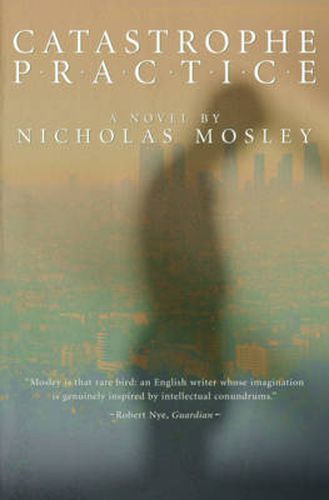Readings Newsletter
Become a Readings Member to make your shopping experience even easier.
Sign in or sign up for free!
You’re not far away from qualifying for FREE standard shipping within Australia
You’ve qualified for FREE standard shipping within Australia
The cart is loading…






In his recent novels–including his award-winning Hopeful Monsters–Nicholas Mosley has investigated the patterns that govern our mental and emotional lives and the possibilities that we have for change, and nowhere has he explored such themes with greater concentration than in Catastrophe Practice. A unique book whose characters and concerns are the basis for the other four novels of the Catastrophe Practice Series - Hopeful Monsters, Imago Bird, Judith, and Serpent– Catastrophe Practice is remarkable both in its form (three plays with prefaces and a novella) and in its ability to convey the complexities of thought. Drawing upon catastrophe theory to examine the discontinuities in human personality and our tendency to progress suddenly rather than smoothly, the six characters of Catastrophe Practice struggle to disrupt traditional ways of being. These characters (and the author) feel that conventional ways of interpreting the world have become destructive–conventional language, conventional feelings, conventional situations–and try to find a way to realize genuine experience.
$9.00 standard shipping within Australia
FREE standard shipping within Australia for orders over $100.00
Express & International shipping calculated at checkout
In his recent novels–including his award-winning Hopeful Monsters–Nicholas Mosley has investigated the patterns that govern our mental and emotional lives and the possibilities that we have for change, and nowhere has he explored such themes with greater concentration than in Catastrophe Practice. A unique book whose characters and concerns are the basis for the other four novels of the Catastrophe Practice Series - Hopeful Monsters, Imago Bird, Judith, and Serpent– Catastrophe Practice is remarkable both in its form (three plays with prefaces and a novella) and in its ability to convey the complexities of thought. Drawing upon catastrophe theory to examine the discontinuities in human personality and our tendency to progress suddenly rather than smoothly, the six characters of Catastrophe Practice struggle to disrupt traditional ways of being. These characters (and the author) feel that conventional ways of interpreting the world have become destructive–conventional language, conventional feelings, conventional situations–and try to find a way to realize genuine experience.